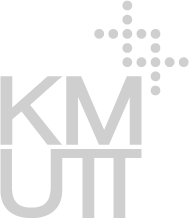COURSE DESCRIPTION
1. Compulsory courses
LNG 701 Advanced Research Methodology 3(3-0-9)
Prerequisite : None
The nature of research. Definitions of research. The relationship between research and knowledge. Characteristics of research. Research paradigms and their applications. Variables, validity and reliability. Research instruments. Statistical analyses of data. Ethical issues in research. Narrowing down a topic. Criticizing previous research. Designing procedures and instruments for data collection. Preparing and analysing data.
LNG 702 Linguistic Theories 3(3-0-9)
Prerequisite : None
Defining characteristics and basic uses of language. Philosophical approaches to studying language (prescriptive v. descriptive, structuralist v. social, static v. dynamic, rule-based v. pattern-based). Introductions to analysing lexis, grammar, syntax, semantics, pragmatics, phonetics, phonology, orthography, discourse. Systemic functional linguistics. Paralinguistics and semiotics. Choice and affect in language use.
or
LNG 703 Theories in Language Learning 3(3-0-9)
Prerequisite : None
The application of general educational theories of learning to language learning, behaviourism, cognitivism, discovery learning, social constructivism, humanism, connectionism, theories specific to language learning and language acquisition. Individual learner differences. Memory. Learning styles. Motivation. Learner autonomy. Affective factors in learning.
2. Elective courses
LNG 711 Research in Discourse Analysis 3(3-0-9)
Prerequisite : None
Approaches to analysing discourse. Exchange structure analysis. Text linguistics. Genre analysis. Conversation analysis; interpretationist approaches to discourse. Sociological discourse analysis. Critical discourse analysis. Semiotics. Contrastive rhetoric. Corpus-based and computational approaches to discourse.
LNG 712 Sociolinguistics 3(3-0-9)
Prerequisite : None
An overview of sociolinguistics. Interrelating social and linguistic variables affecting language in use. Interactive sociolinguistics. Social roles of language in determining identities among individuals and communities. Variation in language use related to social identity, class, age and gender. Variation in language use in terms of corporate and electronic discourse. Accents and dialects. Variation in cross-cultural communication and pragmatics. Discourse patterns, speech act realization and turn-taking. Language change, including pidginization and acculturation. English as an international language and ‘world Englishes’. Applied sociolinguistics, language policy and language education policy with particular reference to Thailand. Issues in conducting research in sociolinguistics.
LNG 713 Processes of Language Learning 3(3-0-9)
Prerequisite : None
Introduction to psycholinguistics. First and second language acquisition. Lexical processing. Reading and listening processes. Writing and speaking processes. Implicit and explicit learning. Incidental and Intentional learning. Memory for language. Attention and automaticity. Practical issues in language learning processes. Research in language learning processes.
LNG 714 Reading Theories and Research 3(3-0-9)
Prerequisite : None
Theories and research into reading: reading models, reading skills and strategies, characteristics of ‘good’ and ‘poor’ readers, schema theories, vocabulary and text readability. Applications of theories in EFL classrooms. First and second or foreign language reading. Methodologies for conducting reading research.
LNG 715 Linguistic and Educational Issues in Thailand 3(3-0-9)
Prerequisite : None
The sociolinguistics of language use in Thailand. Dialectical and context-dependent varieties of Thai. Critical analyses of the use of Thai, especially in politics. The use of English in Thailand. World Englishes and Thai English. Contrastive rhetoric analysis of English and Thai. The educational system in Thailand and educational policies. Critical analyses of systemic issues in Thai education. Comparison of educational policies and practice in Thailand. Case studies of educational innovation. Characteristics of Thai students and beliefs of Thai teachers. English language teaching in Thailand and cultural issues in the application of teaching methodologies.
LNG 716 Research in Autonomy in Language Learning 3(3-0-9)
Prerequisite : None
Concept of learner autonomy and the application of the concept in English language teaching contexts, especially through learner training and self-access learning. Autonomy and culture. Political issues in autonomy. Social autonomy. Teacher autonomy. Application of the idea of learner autonomy and its feasibility in the participants’ home situations. Research approach to autonomy.
LNG 717 Computer Applications in Applied Linguistics 3(3-0-9)
Prerequisite : None
Theories and research into the use of technology and its applications in language learning and teaching. Comparisons of CALL (computer-assisted language learning) and non-CALL. Learning principles behind CALL. Principles of e-learning and comparison of different kinds of E-learning. Corpus linguistics. Intelligent CALL. Computer-mediated communication. Evidence for learning through CALL. Students’ perceptions of CALL. On-line learning and its support. Computer aided assessment in language learning. Implementing CALL as an innovation. Methodologies in CALL research.
LNG 718 Educational Assessment 3(3-0-9)
Prerequisite : None
An overview of the goals, concepts, principles and practice of educational assessment. Evaluating courses, materials, innovations and teachers. Language testing and continuous assessment which include design principles, validity, reliability and statistical analyses of language assessment instruments for validation and standardisation.
LNG 719 Statistics for Applied Linguistics Research 3(3-0-9)
Prerequisite : None
Common statistical procedures used in applied linguistics research and the criteria for selecting them. Practice how to use statistical procedures through the SPSS programme and other computer-assisted content analysis procedures. Coding, organizing, analysing and interpreting the data by using computer-based tools.
LNG 720 Special Topics I 3(3-0-9)
Prerequisite : None
Current topics related to applied linguistics depending on staff availability and participants’ interests.
LNG 721 Special Topics II 3(3-0-9)
Current topics related to applied linguistics depending on staff availability and participants’ interests.
LNG 722 Special Topics III 3(3-0-9)
Prerequisite : None
Current topics related to applied linguistics depending on staff availability and participants’ interests.
3. Thesis
LNG 731 Dissertation 48 unit
Substantial and significant piece of original research in an area of applied linguistics.
Work on the thesis done in consultation with a thesis supervisor or supervisors, who are SoLA teaching staff, or in some cases, from other institutions. The 48 credits allocated as reading (4), proposal(2), design (14), analysis (14), write-up (13) and viva (1).
LNG 732 Dissertation 36 unit
Courses in research methodologies and applied linguistics to be completed in the first two semesters. Work on the thesis done in consultation with a thesis supervisor or supervisors, who are in the SoLA teaching staff, or in some cases, from other institutions. The 36 credits allocated as reading (4), proposal (2), design (10), analysis (10), write-up (9) and viva (1).



